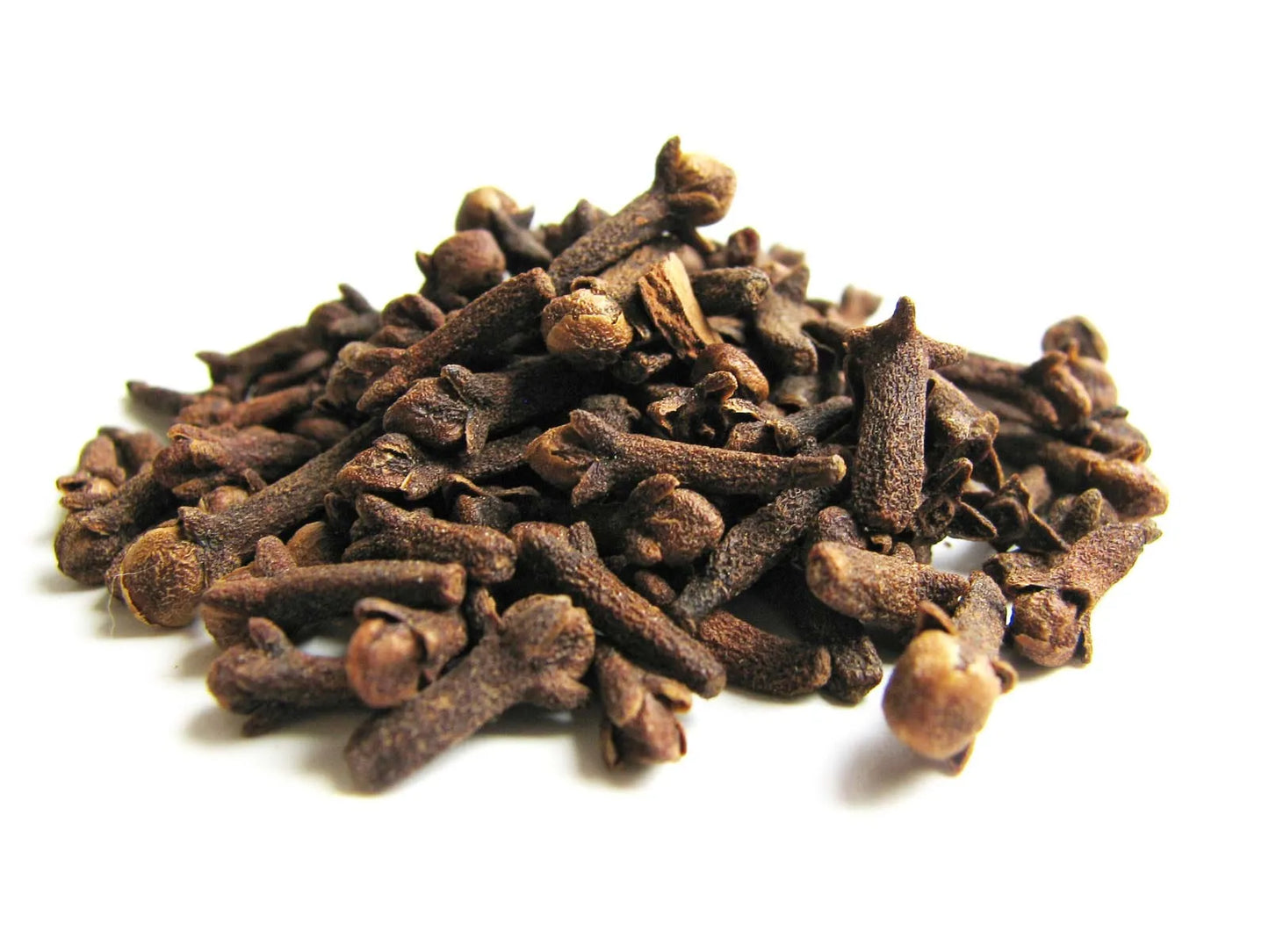🌿 Clove (Syzygium aromaticum)
Warm Spice & Natural Antiseptic — Aromatic Power for Wellness and Flavor
Clove is the dried flower bud of an evergreen tree native to Indonesia, long treasured for its bold aroma, warming flavor, and natural therapeutic benefits. Traditionally used in Ayurvedic and Chinese medicine, clove supports oral health, digestive balance, and immune strength thanks to its primary active compound, eugenol — a natural antiseptic and antioxidant known for its ability to help reduce inflammation and fight bacteria.
Used in teas, tinctures, oils, and culinary blends, clove brings warmth and depth to both your wellness rituals and your kitchen creations.
✨ Clove Benefits
-
Supports oral and dental health
-
Offers antibacterial and antifungal protection
-
Provides anti-inflammatory and antioxidant effects
-
Promotes digestive comfort and reduces gas and bloating
-
Helps relieve tooth and gum discomfort naturally
-
Supports immune system and respiratory wellness
-
Enhances flavor and warmth in food and herbal teas
🍵 How to Use
-
Tea or Infusion: Steep 2–3 whole cloves in 1 cup of hot water for 10 minutes. Strain and enjoy warm.
-
Culinary Use: Add to soups, stews, or spice blends for a rich, aromatic note.
-
Topical Use: Dilute clove oil with a carrier oil (like coconut or olive oil) before applying to skin or gums.
⚠️ Safety & Considerations
-
Pregnancy & Breastfeeding: Safe in food amounts. Avoid large doses or medicinal use without medical guidance.
-
Children: Clove oil is not safe to ingest for children — even small amounts can be toxic.
-
Bleeding Disorders: Eugenol may slow blood clotting — avoid large doses if you have a bleeding condition or upcoming surgery.
-
Medication Interactions: May interact with blood thinners, diabetes medications, and liver-metabolized drugs. Consult a healthcare provider before use.
-
Skin Sensitivity: Undiluted clove oil may cause irritation. Always dilute before topical application.
-
Inhalation: Avoid inhaling clove smoke or vapor; it may cause respiratory irritation.
💡 Toxic Freedom Tip
Add Clove, Cinnamon, and Orange Peel to your evening tea for a warming, immune-boosting infusion — perfect for cold seasons or as a natural after-dinner digestive tonic. 🍊✨
Trending Now
Fresh Arrivals
Stay Connected
Subscribe to receive updates on new products, wellness tips, and exclusive offers. Be the first to know about limited releases and special events.
We respect your privacy and will never share your information.
Follow us for daily wellness inspiration and community stories.


















